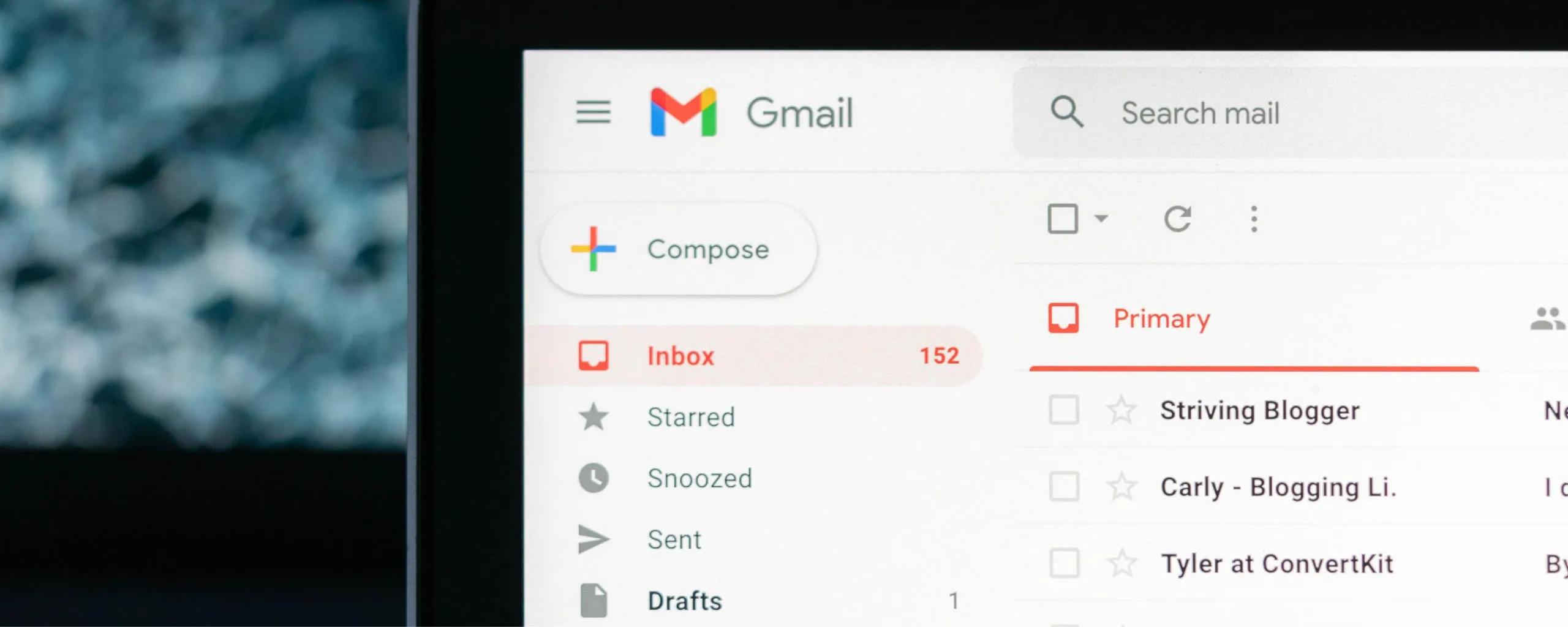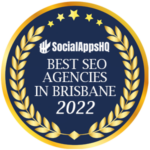Organic digital marketing channels can be your best friend in building an audience and spreading brand awareness for your business online. They are authentic, creative, and they get you outcomes. Organic digital marketing draws from a range of different marketing areas – including SEO, copywriting, social media, content marketing, and community management – all of which gets merged together into a winning strategy that effectively increases your online presence.
At BeKonstructive Marketing, we live and breathe organic digital marketing. We love how the creative, storytelling aspect is paired with strategy and analytics to get the best outcomes possible. We help our clients identify the best organic channels to suit their brand and customers, and then leverage those platforms to build a strong brand, find new customers, and create a loyal following.
In this article, we’re giving you a bit of a crash course in organic digital marketing – what it is, what channels qualify as ‘organic’, and the benefits that an organic approach to digital marketing have over other methods like paid advertising.
What is Organic Digital Marketing?
Organic digital marketing is generally considered to be any form of content marketing that is not advertising. The moment you put money behind a piece of content, it stops being organic and becomes paid advertising.
With organic digital marketing, you’re leveraging the free tools to maximise the reach and lifespan of your content and marketing collateral. You’re “playing the game” by taking the time to understand how the algorithms work, and designing your content so that it performs better organically / naturally – without the need to “boost” it with additional ad spend.
Organic digital marketing uses free channels to generate natural and authentic traffic and brand awareness for your business. For example, you don’t have to pay Facebook to create a page for your business and publish content on there. It generally takes time for the traction of organic digital marketing to take hold, but once it does, you will have nurtured a loyal following who understand and engage with your brand for the long-term.
Paid advertising is when you spend money on ad campaigns to give specific marketing messages a boost on certain digital channels. Search engines and social media platforms have paid advertising services that can help your business cut through the noise and reach audiences quicker.
These approaches aren’t in direct opposition to each other as they fulfil very different roles. Organic marketing is better for nurturing your overall online presence, traffic, and brand awareness. Paid advertising is ideal for targeted campaigns on products, services, or messages that you need to get in front of people ASAP.

The Benefits of Organic Digital Marketing
It is not uncommon for small and medium businesses to have to choose between organic digital marketing or paid digital marketing. Investing in both options requires significant resources, and most digital marketers will agree that it is better to choose one and do it really well then to try and spread limited resources too thinly.
There are a lot of benefits to both organic and paid marketing options – where paid advertising campaigns are great for getting fast, immediate results, organic’s benefits lie in their compounding results. Organic digital marketing should be thought of as an investment – a slow burn that will grow slowly but consistently, allowing your business to grow with it.
Here are some other benefits of organic marketing:
Easier to DIY
If your business has limited resources to put towards marketing, then organic might be the best option for you. Anyone can start a social media profile for their business, or use Campaign Monitor to send out a monthly newsletter to their database.
If you can afford a professional team to help you optimise your content and make sure it aligns strategically with your marketing messages then that is great. But if you’re just starting out and you need to bootstrap some of these activities yourself – teaching yourself how to use Facebook or Instagram is a lot easier than trying to teach yourself how to use the Google Ads platform.
There’s nothing stopping you from writing some informative blog posts or publishing some interesting content on social media. There are no up-front costs involved and the worst that can happen is you lose a few hours of your time.
Enjoys a Longer Lifespan
Paid advertising is either on or off – you’re either paying Facebook or Google to show your ads to people, or you’re not. A paid ad campaign only lasts as long as your budget does.
Organic content on the other hand enjoys a longer lifespan. You post it on your website or your social media feeds and it stays there until you decide to remove it.
SEO in particular is a long-lifespan organic digital marketing channel. Investing in creating great content that ranks well in Google search results will continue to return leads and conversions for years to come.
And, as long as that content stays relevant to your needs, you can always continually link it or repurpose it in other works. Just like organic food, this marketing strategy will keep your business happy, healthier, and lively for a much longer period of time.

Brings out Your Inner-Storyteller
There’s a myth that all marketing is stuffy, promotional, and absent of any creativity. We’ve debunked this myth a few times before, and our defence case only grows stronger when talking about organic digital marketing. Creating organic content requires you to draw from your inner-storyteller, put on your creative hat, and take an exciting approach to connecting with your audience.
This approach may take longer to land a sale or customer than a paid advertising campaign. But organic digital marketing can also have that customer sign up for life as they find meaning and value in the story you are telling them.
Different Types of Organic Digital Marketing Channels
There are a number of different channels and platforms that can be used for organic marketing. We’re sharing some of the most common ones with you so you can start thinking about which ones might be the best for your business.

Search Engine Optimisation (SEO)
The goal of SEO is to get the pages of your website ranking in Google for search terms that are relevant to your products and/or services.
SEO is hard work – it is the most complex organic marketing channel. But it is also the most rewarding in terms of ROI. Organic search traffic consistently performs better than paid search traffic – this trend is seen in almost every single industry.
If you compare 1000 visitors to your website from organic search to 1000 visitors to your website from paid ads – we can guarantee that the organic search traffic will result in more sales / leads / conversions.

Social Media
Social media continues to be one of the great ecosystems for organic digital marketing. Your business can truly build a strong, loyal audience on a social media platform through interesting content creation and consistent community engagement.
Here, you can really bring out the human side of your brand and establish a lasting connection with your audience that will translate into sales.
Some of the key social media platforms for organic marketing include:
- Facebook – great for businesses who want to establish a strong online audience through a variety of content creation methods (written, photos, videos, links, etc).
- Instagram – the go-to for businesses that have a recognisable visual identity and expressive brand values.
- LinkedIn – ideal for B2B businesses who want to cement themselves as a leader within their industry.
- And more – Twitter, TikTok, Youtube, take your pick. There are so many ripe opportunities on social media for organic digital marketing, and they only get more and more exciting each year.
To find out more about how you can best take advantage of social media at the moment, be sure to read our article on the latest social media trends.
Blogs
Blogs on your business’ website are a fantastic form of content marketing that benefits your overall organic digital marketing strategy (almost like that’s what we’re doing here).
Blogs written to target relevant keywords will help more people find your website in Google, leading to more traffic, more engagement, and more sales. But that doesn’t mean that your blogs should just be focusing on ticking all the SEO boxes (although, that is still important). Your blogs should also educate your audience, inform them on relevant topics, and add value to your website.
Sure, sitting down to write 600-800 words on a topic can seem daunting if you haven’t done it before. But once you are into the rhythm of it, you’ll find it flows easier than you thought.

Guest Posting
Guest posting is very similar to blogging, except that instead of posting your content on your business’ website, you post it on someone else’s. In return, you will get access to their audience. An audience who will hopefully say “this person knows their stuff”, and click the link you provide them to your website.
Guest posting is best used for businesses who have connections with other companies in different industries. You get the chance to speak directly to a clean slate of an audience who may just be in the market for what you’re offering.
Lead Magnets
Lead magnets are online resources that your audience can download for free on your website – in exchange for giving you their name and email address. You then use their contact information to send more targeted marketing to them, like email newsletters.
Some popular lead magnets include:
- Webinars
- Ebooks
- Research Papers
- Whitepapers
- Video courses
- And more!
Some lead magnets – like video courses and webinars – require a bit more time, effort, and resources to complete than others. But if your business wants to really establish itself as a leader in its industry, then they can have a great impact on transitioning your followers into actual leads.

Email Marketing
The final organic digital marketing channel we are going to look at is email marketing. Emails are a great way for you to speak directly to your followers by updating them on your business, announcing new products, or just checking in to see how everyone’s doing.
Email marketing is personal, exclusive, and one of your strongest communication channels. Use it wisely, and you will generate more and more leads and interest in your brand and its offerings.
Omnichannel Organic Digital Marketing
You may hear the term ‘omnichannel’ when talking about digital marketing. Omnichannel means you have a digital marketing strategy that links multiple marketing channels into a ‘funnel’ or customer journey.
An example of an omnichannel organic digital marketing strategy might start with social media – you use social media channels to promote the new research paper you’ve produced. Your social media posts feature teasers from the research paper, and tell people to head to your website to download the full paper.
On your website, you have the research paper set up as a lead magnet – they can download it by filling in a form that includes their name and email address.
You then use their contact details to add them to your email list where you send them information about your business, products and services.
This approach is omnichannel because you’ve used social, your website and email marketing to capture and nurture the audience – all without spending a single cent on paid advertising!
Organic Digital Marketing with BeKonstructive Marketing
We are passionate about delivering high quality organic digital marketing services to businesses around Australia. No matter what channels you want to target, our team is ready, willing, and capable of helping your business get the most from this approach.
To find out how we can help, contact us today!



